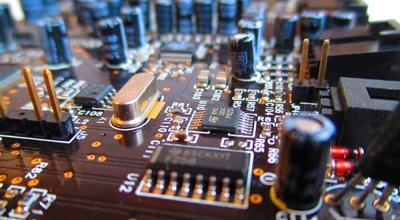Introduction
Filters play a crucial role in the world of electronics. They are essential components that ensure optimal performance, reliability, and longevity of electronic systems. Whether you're using a smartphone, computer, or any electronic device, filters work silently behind the scenes to remove unwanted signals, minimize noise, and protect sensitive components. In this article, we will delve into the significance of filters in electronics, exploring their various types, applications, and benefits.
The Importance of Filters in Electronics
Filters in electronics are designed to selectively allow or block specific frequencies or signals, enabling desired information to pass through while attenuating or eliminating unwanted noise. They act as gatekeepers, ensuring the integrity and quality of electrical signals within a device or system. Here are some key reasons why filters are of utmost importance in the field of electronics:
- Signal Integrity Preservation
Electronic devices rely on the accurate transmission and reception of signals. However, electromagnetic interference (EMI) and radio frequency interference (RFI) can distort or corrupt these signals, leading to data loss or inaccurate readings. Filters combat EMI and RFI by blocking or reducing unwanted frequencies, thereby preserving the integrity of signals and ensuring reliable operation.
- Noise Reduction
Noise is an unwanted disturbance that can interfere with the functionality and performance of electronic devices. Filters are specifically designed to attenuate noise, enabling clearer and more accurate signal processing. By reducing noise levels, filters enhance the overall quality and efficiency of electronic systems.
- Component Protection
Sensitive electronic components, such as integrated circuits, microprocessors, and sensors, can be easily damaged or degraded by excessive voltages or unwanted signals. Filters act as a protective barrier, preventing harmful signals from reaching these components and safeguarding them against potential damage. This extends the lifespan of electronic devices and reduces the risk of costly repairs or replacements.
- Frequency Selection and Bandwidth Control
Different electronic applications require specific frequency ranges for optimal performance. Filters allow for precise frequency selection, enabling devices to operate within the desired range while rejecting signals outside that range. Additionally, filters help control the bandwidth of signals, ensuring that only relevant frequencies are processed, while attenuating or blocking unwanted frequencies.
- Enhanced System Reliability
In complex electronic systems, the presence of unwanted signals can lead to errors, malfunctions, or even system failures. By incorporating filters at various stages, the reliability and robustness of electronic systems are significantly improved. Filters eliminate the risks associated with unwanted signals, providing stable and consistent performance.
Types of Filters in Electronics
Filters are available in various types, each designed to address specific filtering requirements. Let's explore some common types of filters used in the field of electronics:
- Passive Filters
Passive filters are composed of passive components such as resistors, capacitors, and inductors. They are widely used due to their simplicity, cost-effectiveness, and reliability. Passive filters are commonly employed for applications that require low-frequency filtering or attenuating unwanted signals.
- Active Filters
Active filters, on the other hand, incorporate active components such as operational amplifiers to achieve more precise filtering characteristics. They offer advantages such as adjustable gain, higher order filtering, and improved control over frequency response. Active filters are often utilized in audio systems, telecommunications, and high-frequency applications.
- Digital Filters
Digital filters operate on digital signals and are implemented using digital signal processors (DSPs) or microcontrollers. They offer versatility, programmability, and the ability to perform complex filtering operations. Digital filters find applications in multimedia devices, telecommunications networks, and digital signal processing systems.
- Analog Filters
Analog filters process continuous analog signals and are commonly implemented using operational amplifiers and passive components. They are known for their simplicity, low power consumption, and high-quality signal processing. Analog filters are extensively used in audio systems, radio communications, and analog signal conditioning.
- Switched-Capacitor Filters
Switched-capacitor filters utilize the charging and discharging properties of capacitors to achieve precise filtering characteristics. They offer advantages such as high accuracy, low component count, and low sensitivity to temperature variations. Switched-capacitor filters find applications in data acquisition systems, instrumentation, and communication devices.
Frequently Asked Questions (FAQs)
FAQ 1: What is the purpose of a filter in electronics?
Filters in electronics serve the purpose of selectively allowing or blocking specific frequencies or signals, ensuring signal integrity, reducing noise, protecting components, and enhancing system reliability.
FAQ 2: How do filters reduce noise in electronic devices?
Filters reduce noise in electronic devices by attenuating or blocking unwanted frequencies, allowing clearer and more accurate signal processing.
FAQ 3: What are some common types of filters used in electronics?
Some common types of filters used in electronics include passive filters, active filters, digital filters, analog filters, and switched-capacitor filters.
FAQ 4: What is the difference between passive and active filters?
Passive filters use passive components such as resistors, capacitors, and inductors, while active filters incorporate active components such as operational amplifiers. Active filters offer more precise filtering characteristics and improved control over frequency response.
FAQ 5: Where are filters used in electronics?
Filters are used in various electronic applications such as audio systems, telecommunications, data acquisition systems, radio communications, and digital signal processing systems.
FAQ 6: How do filters enhance the reliability of electronic systems?
Filters enhance the reliability of electronic systems by eliminating the risks associated with unwanted signals, ensuring stable and consistent performance, and protecting sensitive components from damage.
Conclusion
The importance of filters in electronics cannot be overstated. They are vital components that contribute to the performance, reliability, and longevity of electronic devices and systems. By preserving signal integrity, reducing noise, protecting components, and enhancing system reliability, filters play a crucial role in ensuring optimal functionality and user experience. Understanding the various types and applications of filters empowers engineers and enthusiasts to design and utilize electronics with greater efficiency and effectiveness.


No comments yet